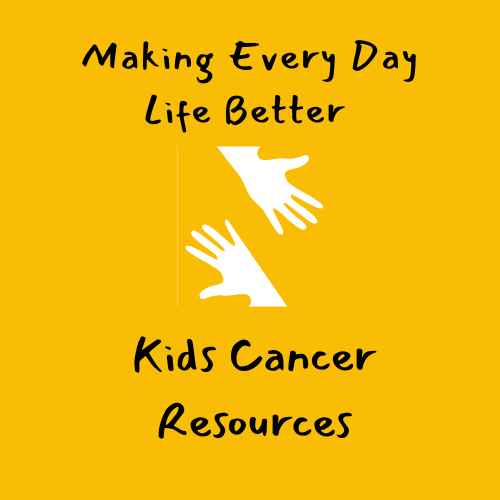Understanding the Emotional Landscape of Childhood Cancer Support
Facing childhood cancer is an overwhelming journey not just medically but emotionally for the child and their family. The diagnosis often triggers a whirlwind of feelings — fear, confusion, hope, and determination. Childhood cancer support extends beyond treatment rooms; it involves nurturing emotional strength and resilience.
Emotional support plays a crucial role in improving the overall well-being of children battling cancer. It helps them cope with the stress of treatment, hospital stays, and the impact on their everyday lives. Families also need guidance to manage their fears and maintain hope throughout the journey.
Providing age-appropriate counseling and therapeutic activities allows children to express their feelings in a safe environment. Support groups connecting families facing similar challenges can reduce isolation and build a community of empathy and encouragement.
The Role of Psychological Care
– Tailored counseling for children to manage anxiety and pain
– Support for siblings and parents grappling with emotional stress
– Techniques like play therapy, art therapy, and mindfulness to ease psychological burdens
Creating a Support Network
Strong childhood cancer support networks include healthcare providers, social workers, teachers, and mental health professionals. Each plays a part in fostering a nurturing environment that champions healing and psychological stability.
Practical Support Strategies for Families
Families often face logistical hurdles while caring for a child with cancer, including frequent hospital visits, managing medication, and balancing other household responsibilities. Practical childhood cancer support addresses these challenges by offering resources and strategies tailored to family needs.
Coordinating Care and Daily Life
– Establishing routines to maintain normalcy amid treatment schedules
– Utilizing community resources such as transportation services and meal programs
– Employing respite care to give primary caregivers time to recharge
Financial Guidance and Assistance
The financial impact of childhood cancer can be significant. Childhood cancer support organizations often provide assistance with medical bills, travel costs, and accessing insurance benefits, alleviating stress and allowing families to focus on care.
Educational and Social Support for the Child
Cancer treatment can disrupt a child’s education and social development. Maintaining academic progress and social connections is essential for emotional health and a sense of normalcy.
Educational Accommodations
– Coordinating with schools for individualized education plans (IEPs)
– Offering tutoring and virtual learning options during hospital stays
– Ensuring communication between healthcare teams and educators for tailored support
Promoting Social Connections
Maintaining friendships and social activities, where possible, promotes psychological well-being. Support groups and camps tailored for children with cancer facilitate peer connections and reduce feelings of isolation.
Leveraging Community and Online Resources
Numerous organizations and online platforms provide comprehensive childhood cancer support to families and patients. Accessing these resources broadens the support network and delivers valuable information and comfort.
Key Community Resources
– Local hospitals and cancer centers with specialized pediatric oncology units
– Nonprofits like St. Jude Children’s Research Hospital and the Children’s Cancer Association
– Support groups offering in-person and virtual meetings for families
Online Support Platforms
– Dedicated forums connecting families worldwide for advice and solidarity
– Educational websites providing up-to-date cancer research and care guidelines
– Social media groups to share experiences and encouragement
For more in-depth information, resources, and connection opportunities, visit the [American Cancer Society’s Childhood Cancer Support page](https://www.cancer.org/treatment/children-and-cancer.html).
The Importance of Holistic Care and Self-Care
Childhood cancer support integrates holistic approaches that treat the child’s physical, emotional, and spiritual needs. Encouraging self-care practices in families ensures sustained well-being during intense treatment periods.
Integrating Complementary Therapies
– Gentle physical activities such as yoga and meditation tailored for young patients
– Nutritional counseling to support strength and recovery
– Relaxation techniques to alleviate treatment-related side effects
Caregiver Well-being
Primary caregivers benefit from support through counseling, support groups, and mindfulness practices. Prioritizing their health enables them to provide better care and emotional stability for their child.
Advocacy and Empowerment Through Knowledge
Empowering families with knowledge about childhood cancer, treatment options, and support services is fundamental to navigating the journey confidently and proactively.
Understanding Rights and Resources
– Accessing educational rights and healthcare benefits
– Learning about clinical trials and advanced treatments
– Connecting with advocacy groups to influence policies affecting childhood cancer care
Building Resilience Through Information
Educated families can advocate effectively for their child’s needs and engage actively with healthcare providers. This empowerment builds resilience and fosters a collaborative care environment.
Finding Lifelong Connections and Continued Support
Childhood cancer support does not end with remission. Survivors and their families benefit from ongoing support networks addressing long-term physical, emotional, and social challenges.
Survivorship Programs
– Monitoring late effects of treatment
– Providing psychological counseling tailored to survivors
– Facilitating reintegration into school and community life
Peer Mentorship and Community Engagement
Connecting survivors with peers who have shared experiences encourages mutual support and inspires hope for a bright future.
Facing childhood cancer means embracing a comprehensive support system that extends well beyond medicine. Emotional, practical, educational, and community support can transform the journey into one of resilience and hope. If you or someone you love is navigating this path, take the next step today in building a network of care and empowerment. Visit khmuhtadin.com to learn more and find personalized childhood cancer support tailored to your needs.




